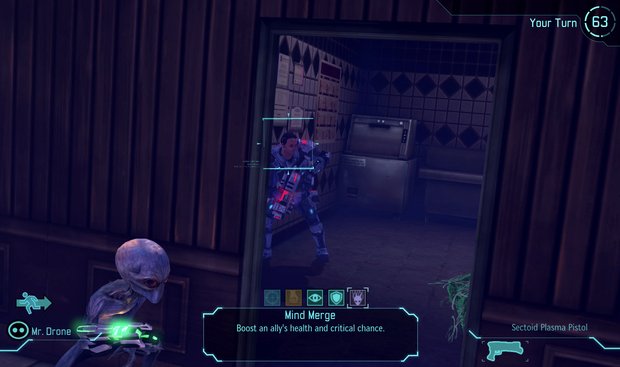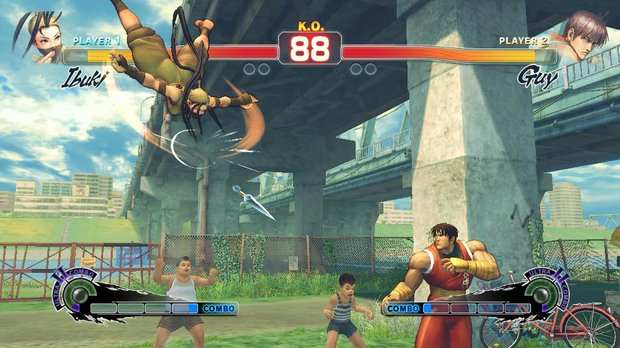Current-gen's obsession with online progression is wrecking multiplayer (and making you a worse gamer)
There's no real prestige to be had in leveling up
I was playing XCOM: Enemy Unknown the other day. This should come as no surprise, as playing XCOM: Enemy Unknown is basically all I do these days. But this time was a bit different. Having recognised that the game is clearly ruining my life, I’d decided to claw back a bit of the social interaction that Firaxis’ compulsive beauty has been robbing me of lately. So I was trying out the multiplayer.
XCOM’s multiplayer is brilliant, by the way. It’s a terrifying, tense tactical sandbox in which you’re never quite sure what you’re going up against but are always fully aware that what you’re going up against could be anything. With a limited pool of points to spend on any unit in the game – human or alien - opposing teams can contain any powerful, off-kilter combination of combatants you can think of. Everything is available from the start, so although daunting at first there are fathoms of depth to be had in terms of tactical experimentation.

Read back the first eleven syllables of that last sentence again. “Everything is available from the start”. Refreshing, no? And the more I played XCOM’s multiplayer, the more I realised something quite serious. I miss ‘proper’ multiplayer games. Ones which aren’t built around levelling up and unlocking stuff. Because for me, MMOs excempt, that model is ruining the fun of multiplayer by turning it into something else entirely. Something it really should not be.
Let’s use Street Fighter as an example of what I’m talking about. It’s by no means the only example, but its workings are a great microcosm for explaining what I see as the real joys of competitive gaming. In short, the game mechanics are a conduit for human interaction. Conversation, even, albeit one spoken with pixel-fists instead of words. Particularly if playing with regular opponents you know well, and using long-standing main characters, the game becomes a constant to-and-fro of self-improvement and one-upmanship.

Someone learns a new tactic or a new element of their character’s game that they didn’t know. The other player spends a few matches trying to find a way around it. They eventually succeed, and find out some new things for themselves. The process begins again, and goes back and forth all night until both participants have learned so much about the game and that they're playing a totally different, newly discovered game to the one they started. And every decision made along the way, every adaptation and interaction, is fuelled through and through by the personalities of the players and their off-screen relationship.
The free exploration of organic, open-ended multiplayer is certainly not just a fighting game thing. I also remember those long nights in the early ‘00s spent trying to attain the unreachable goal of mastering Quake III Arena. Q3A, if you haven’t played it, is the daddy of online shooters, and the realm of some of the absolute best, most visually impressive, most experimental high-level play you’ll see in any game. The standard weapon set and speedy, high-flying physics are an utter joy in themselves, but when its players started monkeying around with those physics, bending their rules and manipulating the limits of their interactions with the game world, they came up with some staggering moves and techniques that completely transformed the game. It’s an enthralling environment in which to develop your own play style.
I remember the first time I ever landed a decent scoreboard place by getting good at mid-air sniping on the space maps. That was cool. I remember when I took a step up and became (relatively) skilled at launching myself around with rocket-jumps. That was awesome. And the day I kicked off the inside wall of a spiral staircase with a rocket-jump, hurtled out of the top at approximately the speed of sound, and then nailed a guy with a reactionary railgun shot before landing? You can keep your Prestige, thanks. I’d rather have an achievement I actually achieved in the real world.
Weekly digests, tales from the communities you love, and more
Because that’s the thing with online progression. You level up in the game, not in your real life gaming skills. Games that use multiplayer levelling distract the player with a sparking procession of new logos and outfits and weapons and gadgets in order to create the illusion of in-game progress. But you’re not really getting better. You’re not really progressing as a person, as a player. You’re being given the surface trappings of development and improvement without necessarily achieving any of the real substance of knowledge, insight and understanding that's supposed to go along with that. There’s just no real ownership of your new abilities. It's total bull.



